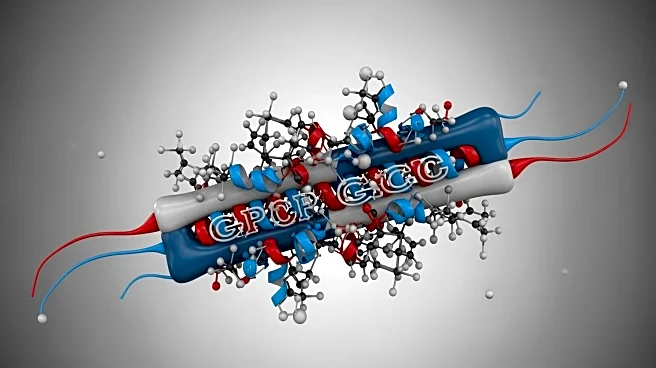What's Happening?
A study published in Nature investigates the design of allosteric modulators to alter G protein subtype selectivity in GPCRs, focusing on the neurotensin receptor 1 (NTSR1). Researchers synthesized analogues of SBI-0654553, a biased NTSR1 agonist, to preferentially
activate β-arrestins over the receptor's preferred G protein, Gq. This approach aims to reduce on-target side effects such as hypothermia, which are common with balanced NTSR1 agonists. The study involved extensive biochemical assays and molecular dynamics simulations to optimize the structure and function of these modulators.
Why It's Important?
The ability to selectively modulate GPCR signaling pathways has significant implications for drug development, particularly for conditions like schizophrenia, cancer, and substance-use disorders. By reducing side effects associated with traditional agonists, these modulators could lead to safer and more effective treatments. This research represents a step forward in precision medicine, where therapies can be tailored to target specific pathways without affecting others, minimizing adverse effects.
What's Next?
Further research is needed to validate these findings in vivo and explore the therapeutic potential of these modulators in clinical settings. The study sets the stage for developing new drugs that can precisely target GPCR pathways, potentially leading to breakthroughs in treating complex diseases. Collaboration with pharmaceutical companies could accelerate the translation of these findings into marketable therapies.
Beyond the Headlines
This research highlights the growing importance of allosteric modulation in drug discovery, offering a novel approach to receptor targeting that could revolutionize pharmacology. The study also underscores the need for interdisciplinary collaboration, combining chemistry, biology, and computational modeling to achieve breakthroughs in medicine.















